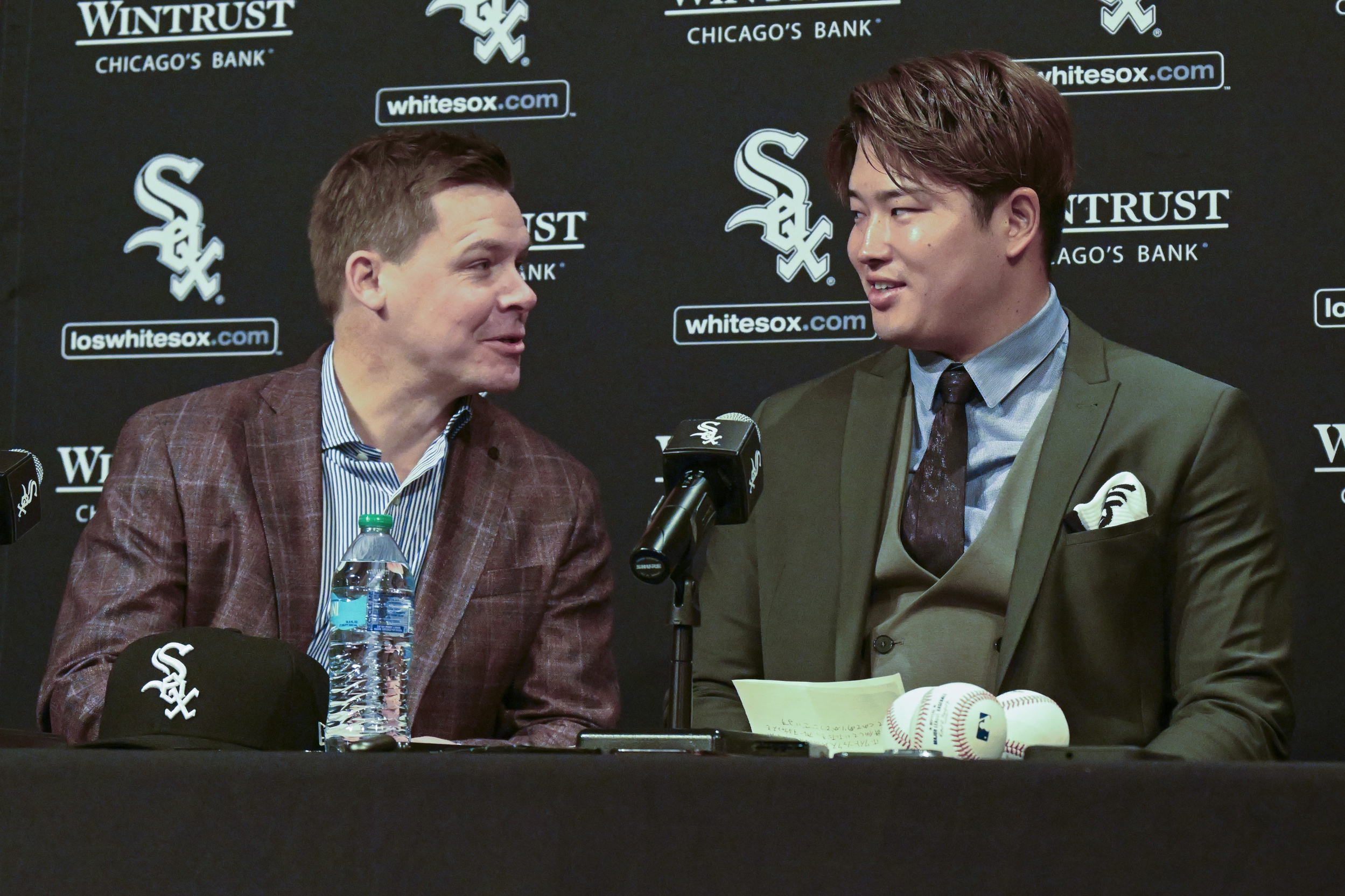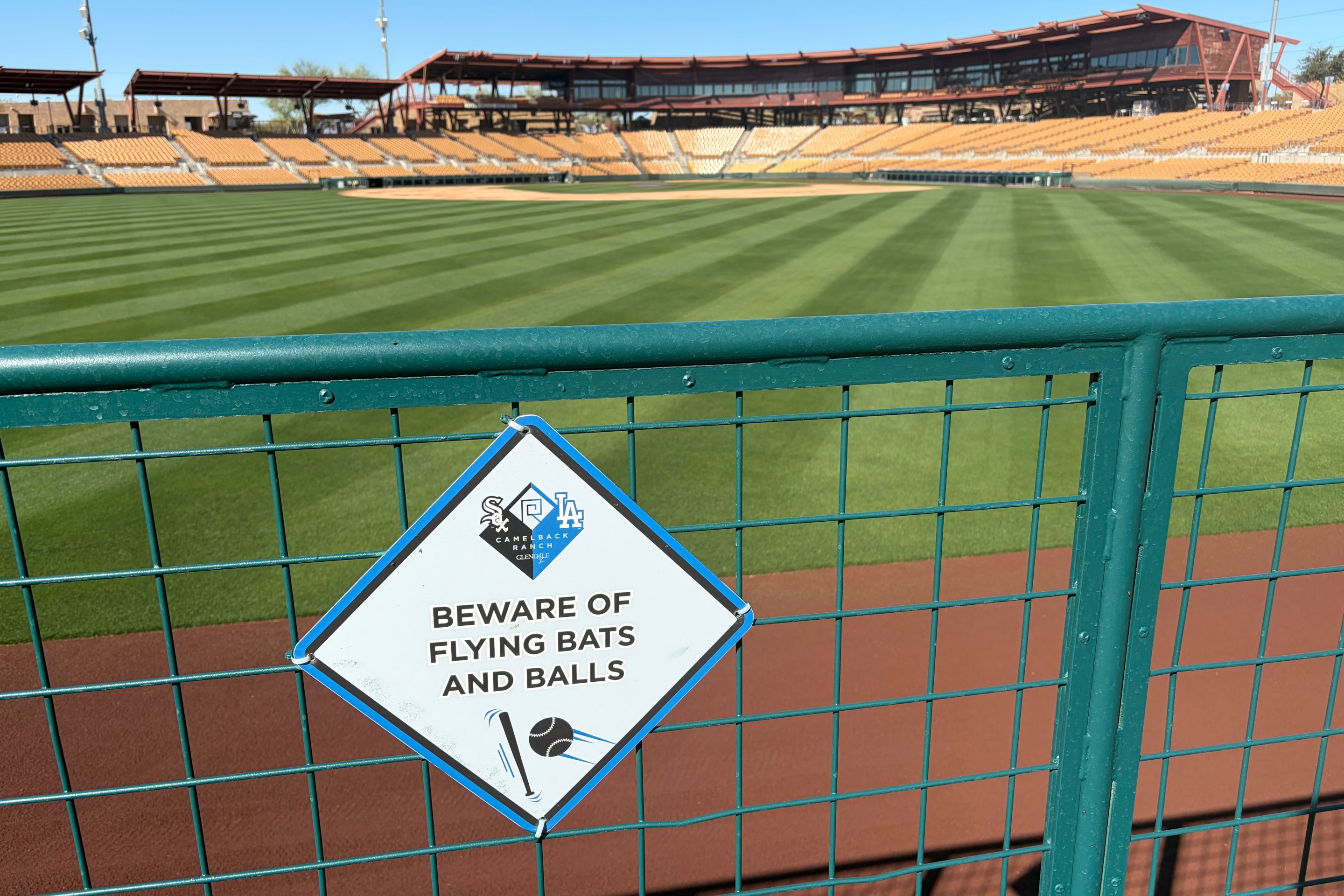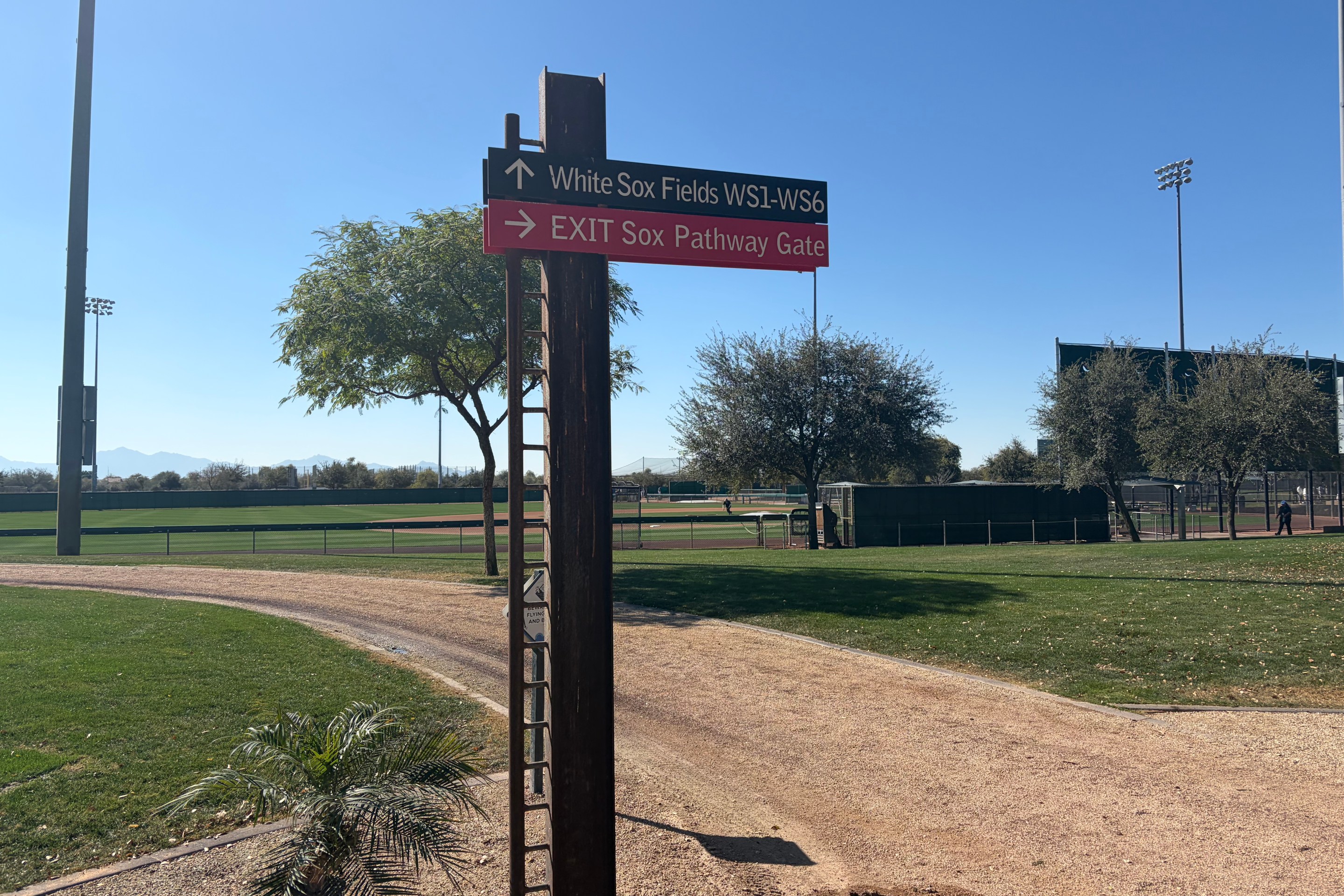The White Sox have handed out one multi-year deal in free agency since Chris Getz took over as general manager, and even that move was underscored by an effort to avoid paying normal market value, since it was signing Erick Fedde off an MVP season in the KBO. At his season-ending press availability, Getz ended a question about offseason spending by saying "the most important thing is continuing the improvement and development of our young players," and that lukewarm indictor came prior to the club officially picking up Luis Robert Jr.'s club option on Tuesday to put the rosters's existing 2026 payroll commitments in the neighborhood of $40 million.
So there was a fair amount of warning already issued that the White Sox were not picking this offseason to redefine how their approach to free agency and spending is viewed across the sport. But there's always something to be said for the impact of having fears strengthened of another White Sox hot stove left on simmer.
"We’ll take a look at it, like we have in the past," Getz said Tuesday of free agency. "If there are opportunities to improve the club, we are going to, highlighted the need for protecting our young arms. We do have some arms underneath that are going to make an impact next year, but don’t anticipate that happening too much in the opening day of next season. So, it is a long list of free agents on the pitching front, both relievers and starters. We will be active. To what extent is yet to be seen."
The Sox signed six players to guaranteed free-agent deals last winter (all for one year), so they are experienced in meeting the definition of "active" without dominating the headlines. Coming off a 101-loss season that was still the second-worst mark in MLB, Getz both downplayed the impact of a potential lockout in 2027 on decisions for adding players, and explained why the White Sox's roster situation could make that a distinction without a difference.
"We’ve really haven’t factored in the looming CBA negotiations," Getz said. "Free agency is an avenue to bring in players to help in the win total. But to go beyond this upcoming season I think would be a little premature considering the state of our club right now and the development of these young players."
⚙️⚙️⚙️
The way the Sox leadership talks about Robert's talent level and production when healthy, you'd imagine he had hit a little better than .223/.288/.372 in 210 games over the last two seasons. But the White Sox are also lacking for outfield talent more deserving of opportunity than Robert, and even the far less controversial parting with Martín Pérez over his $10 million mutual option for 2026 opens up a roster hole that they will have to address.
"We're going to take a look at the pitchers that are available both in free agency and we'll have trade discussions as well," Getz said. "With our situation we do have a lot of young starters. There are a lot of innings that need to be covered. Finding individuals that we feel like can not just cover innings but give us some quality innings is something that we're targeting. There's a long list of pitchers in free agency, so we'll have plenty of options."
With his flexor and shoulder strains, Pérez himself was limited to 56 innings in 2025 and didn't actually fit the veteran workhorse role he was signed to fill. But with Hagen Smith still battling efficiency and command issues in the AFL, and Noah Schultz still expected "to be full go in spring training" but not off a mound yet in his recovery from patellar tendinitis, the White Sox aren't expecting their prospect depth to be rotation factors in the first half of the season. So they have every reason to peruse a short-term starting pitcher shopping guide.
⚙️⚙️⚙️
New White Sox pitching coach Zach Bove's origin story, a former first baseman-turned junior college hitting coach who got nudged into taking over College of Central Florida's pitching instruction a little over a decade ago, is unique enough that he doesn't have to discuss his approach much to already offer a fresh perspective.
"Starting out I couldn't just fall back on, 'Well, this is what I did as a pitcher,' right?" Bove said. "I just had to search for the best way to go about it. I was totally open. That's kind of right around the time when all this information was coming, you know, Twitter and Driveline and all that stuff. So just really open, talked to a lot of people in the game, used my playing experience as a way to say, 'OK, this is what I struggled with as a hitter, so maybe there's value in kind of educating our pitchers on that.'"
The Royals have, by far, allowed the fewest stolen bases in the sport each of the last two seasons, while the White Sox have been in the bottom-10 of MLB for controlling the running game in each of the last five seasons. To that end, Bove has pledged his excitement to import some Royals standards to the Sox pitching staff for holding runners. But with the way Sox pitching walking the most hitters in baseball over the past three years was tied to his predecessor, Bove can most readily distinguish himself by finding any way to cut free passes.
Now, tasking a pitching coach with cutting walks is kind of like electing a politician to be tough on crime. It can be cathartic to cut loose all the pitchers who struggled with walks and/or ditch the pitching coach who oversaw it, but such decisive moves rarely do anything to address the root cause, with a popular one being that pitchers lacking the raw stuff and/or secondary command to challenge hitters in the zone often find themselves nibbling.
That's more of a talent procurement and development issue than something a first-year pitching coach can be expected to tackle, but Bove has an early opportunity to show if a certain brand of coaching can be the difference between struggling with walks and annually leading all of MLB in them. Like a lot of recent Sox hires, Bove alluded to being attracted to Getz's vision for the future of the franchise. Early on, it seems his view of that vision involves being enable to be a stickler about controlling the zone.
"That’s nothing groundbreaking, first-pitch strikes, early ahead, things that every team talks about," Bove said. "There’s a unique way of how it’s messaged, how to keep guys accountable to it, how to really individualize it. Getz talked about it, there’s a lot of things that go into walk rates, it’s not just one thing. So we’re going to understand what this specific individual needs that maybe has a high walk rate and we’re going to attack that. We’re going to educate him on ways to improve it and we’re going to create an environment where on a daily, weekly basis that reinforces that goal that we’re trying to correct."






